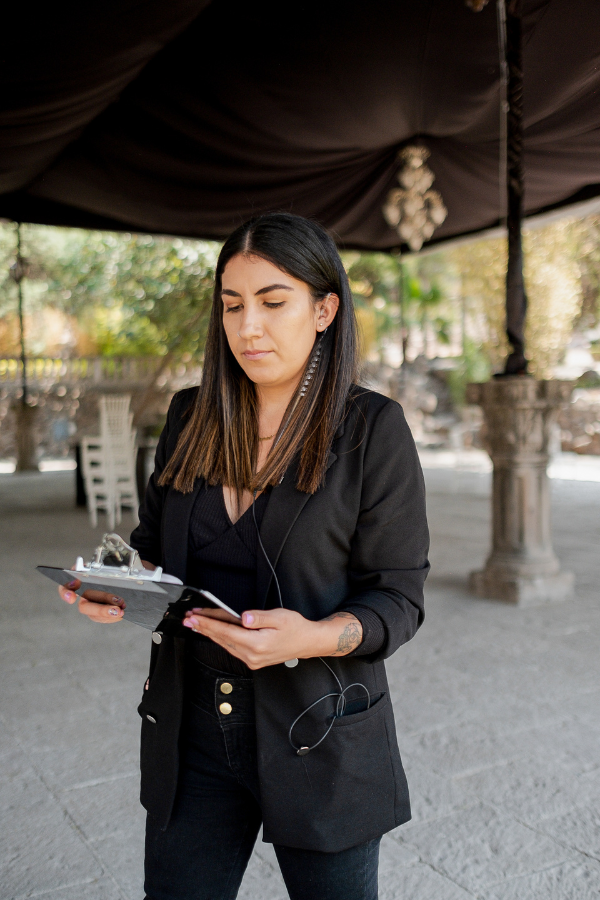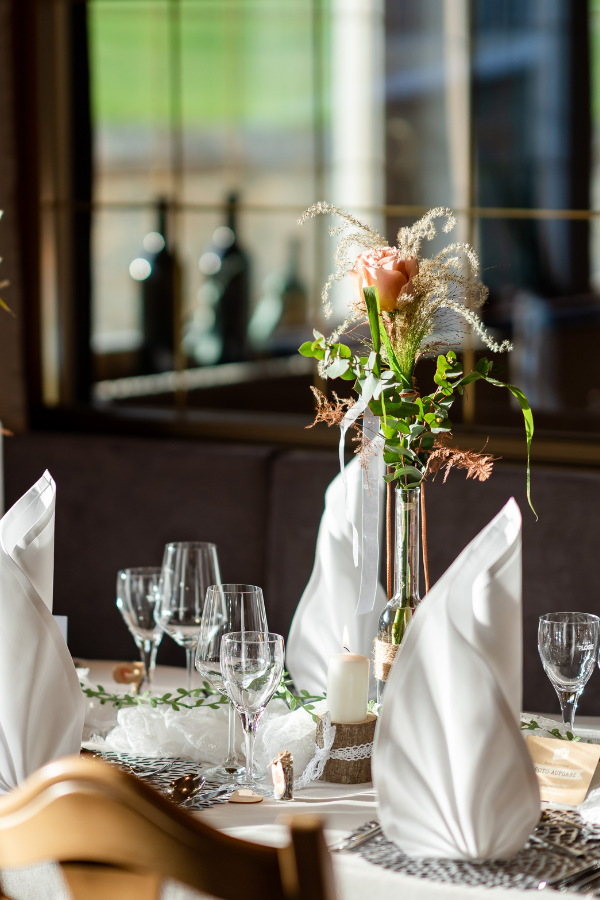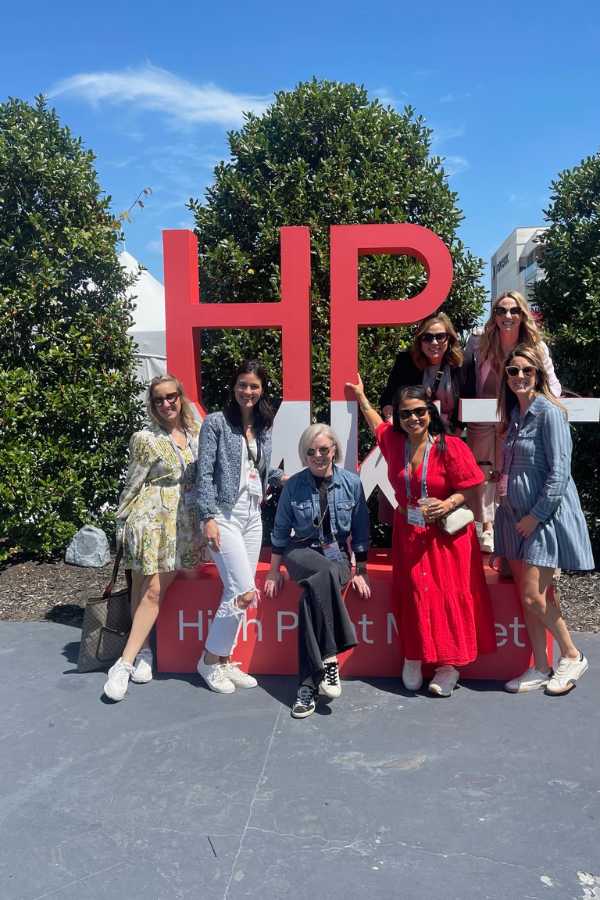

Mid-Career Switch: How to Become an Event Planner With No Experience
Summary
This guide provides a comprehensive overview for those considering a mid-career switch to event planning, covering everything from the fundamental roles of an event planner to detailed steps for gaining necessary skills and experience. It discusses the importance of formal education, practical experience through internships or volunteer work, and highlights the crucial skills needed for success in the industry. Our article also explores various event planning specializations and offers motivational advice for women embarking on this career path.
Reflection Questions
- What personal strengths do you possess that would be beneficial in a career in event planning, and how can you further develop these strengths?
- Considering the different types of event planning specializations mentioned, which one resonates most with you and why?
- How do you plan to build and utilize a professional network to support your transition into event planning?
Journal Prompt
Reflect on your current career path and what has prompted your interest in event planning. Write about the aspects of event planning that excite you the most and how you envision using your existing skills in this new field. Detail the steps you plan to take to transition into event planning, and how you will overcome potential challenges along the way. Consider setting specific goals and a timeline for your career shift to keep yourself accountable.
If you’ve ever dreamed of orchestrating unforgettable experiences, a mid-career switch to event planning might be your perfect move. This comprehensive guide will navigate you through the process, from leveraging your existing skills to gaining relevant experience and ultimately landing your dream job in this dynamic field. Whether you’re drawn to corporate conferences, micro weddings, or intimate social gatherings, this is your roadmap to a successful and fulfilling career in event planning.
What Exactly Do Event Planners Do?


Event planners (sometimes called event managers) are professionals responsible for the conceptualization, organization, and execution of events ranging from corporate conferences to private social gatherings like weddings and birthday parties. They start by understanding the client’s vision and objectives for the event, then proceed to plan the details such as selecting the venue, setting the date, and determining the budget.
Event planners coordinate every aspect, including decor, catering, entertainment, transportation, and accommodation for attendees if necessary. They also manage invitations, registrations, and guest lists to ensure the event runs smoothly. Throughout this process, they liaise with vendors and negotiate contracts to provide the best experience within the client’s budget.
Furthermore, event planners are skilled in handling unforeseen challenges that can arise during events, such as last-minute changes in logistics or weather-related issues. They are adept at making quick decisions to mitigate any disruptions. Effective communication is crucial in their role, as they must keep all parties informed and maintain clear lines of communication among clients, vendors, and event staff.
Post-event, they often engage in evaluating the success of the event through feedback from participants and clients, handling any post-event billing and reconciliations, and ensuring a comprehensive wrap-up. This evaluation helps them refine their practices for future events, ensuring continuous improvement in their service delivery.
Skills Needed to Become a Successful Event Planner
To be a successful event planner, one needs a blend of hard and soft skills that enable the efficient organization and management of events. From flexibility to financial management, these are the skills you need to jumpstart your event planning career.
Organizational Skills


Event planners must excel in organizing and coordinating different aspects of an event simultaneously. This involves managing timelines, logistics, vendors, and the needs of guests, all while keeping an eye on the overarching event goals.
Attention to Detail
Next on our list of event planning skills is close attention to detail. After all, details are how you make or break an event planning business. This includes everything from ensuring the correct setup of venues to adhering to specific dietary requests and making sure every aspect of the event is considered and executed flawlessly.
Communication Skills


Effective communication is crucial in event planning. Planners must clearly convey ideas, instructions, and expectations to clients, vendors, staff, and participants. They also need to be excellent listeners to fully understand the needs and desires of their clients.
Problem-Solving Skills
Events often come with unforeseen challenges, whether it’s a last-minute change in venue, vendor cancellations, or inclement weather. Event planners need to think quickly on their feet and provide creative solutions to solve problems as they arise.
Budget Management
Handling budgets efficiently is key. Event planners need to be able to allocate funds appropriately, negotiate with suppliers and vendors to get the best prices, and keep the event within financial constraints without compromising quality.
Time Management


Managing time effectively is essential for meeting the numerous deadlines associated with events. Event planners must prioritize tasks and make smart use of their time to ensure everything is prepared before the event starts.
Networking Skills
Building and maintaining relationships with a variety of stakeholders, such as vendors, sponsors, and venue managers, is vital. A strong network can provide better deals, high-quality services, and potential client referrals.
Flexibility and Adaptability


The ability to adapt to changing circumstances and remain flexible in decision-making can often be the difference between a good event and a great one. Event planners must be prepared to alter plans and respond to dynamic situations.
Technology Proficiency
Familiarity with event management software, social media, and basic digital marketing tools can enhance an event planner’s efficiency and reach. These tools help in managing registrations, promotions, and communications more effectively.
Creativity
Lastly, creativity is essential not just in design and decoration, but also in overcoming obstacles, crafting unique experiences, and ensuring the event stands out. Creative thinking helps in delivering memorable and engaging events.
Naturally Transition to Event Planning from These Professions


Event planning is a versatile field that can be a good career transition for many professionals due to its reliance on organizational, management, and people skills. Below are a few professions that can naturally transition to event planning.
Hospitality Workers (Hotel Managers, Restaurant Managers)
Hospitality managers have a solid foundation in managing complex operations that can involve coordinating large-scale services, such as weddings, conferences, and dining. Their direct experience with customer service ensures they excel in attendee satisfaction—a key component of successful events. They also frequently deal with vendors and supply chains, aligning closely with the needs of event planning where vendor relationships can determine the quality and reliability of an event.
Human Resources Professionals


HR professionals often take the lead in organizing internal events, such as company retreats, training sessions, and holiday parties. Their skills in logistics and budgeting are critical when planning events, ensuring that everything runs smoothly and within financial constraints. Additionally, their experience managing people helps in coordinating event staff and ensuring that team roles are clearly defined and executed. This is an ideal skill set for event planners.
Public Relations Professionals
Public Relations experts are skilled at creating and maintaining a positive image for their clients, often through events like press conferences and product launches. Their ability to handle multiple projects simultaneously and communicate effectively with different stakeholders (media, clients, public) prepares them well for event planning, where similar coordination and multitasking are required. Additionally, they are adept at crisis management and can handle unexpected issues during events with professionalism and poise.
Marketing Professionals
Marketing professionals understand how to create and execute strategies that capture the attention of target audiences, a skill crucial to event planning. Their experience in promoting products or services is directly applicable to events, where promotional strategies are critical for success. They also tend to have data-driven insights into customer preferences and behaviors, which can be invaluable in planning events that meet and exceed participant expectations.
Administrative Assistants
Administrative assistants are the backbone of office operations, often handling scheduling, logistics, and communications—key elements in event planning. Their ability to organize, prioritize, and manage multiple tasks efficiently ensures that event details are handled competently. Their experience in coordinating between different departments and handling logistics makes them adept at managing the multifaceted components of events.
Project Managers
Project managers excel in delivering projects on time and within budget, skills that are essential for successful event planning. Their proficiency in managing resources, timelines, and team dynamics makes them natural leaders in the event environment. They are adept at seeing the big picture while managing the minute details, ensuring that all elements of the event are harmonized and achieve the desired outcome.
Design Professionals (Graphic, Interior, Fashion Designers)


Design professionals bring a creative and aesthetic perspective to event planning, which is crucial for creating visually appealing environments. Whether it’s a graphic designer developing promotional materials, an interior designer arranging spaces, or a fashion designer coordinating the style elements of an event, their attention to visual detail can significantly enhance the event experience. Their ability to think creatively and adapt their designs to fit various themes and concepts is invaluable in setting the right tone and atmosphere for an event.
Career Path to Becoming an Events Planner


Many future event planners begin with formal education in a related field such as hospitality management, public relations, marketing, or business administration. These courses often include relevant subjects that provide a foundational understanding of the skills needed in event planning. Additionally, consider specific event planning courses or workshops that offer certifications, such as those from the Meeting Professionals International (MPI) or the Events Industry Council.
Consider Specialized Education
Several educational institutions offer specialized programs in event planning and management, which can be excellent for those aspiring to enter the field. These programs often combine theoretical knowledge with practical applications, helping students understand the nuances of event planning. Below are a few popular programs.
New York University’s Certificate in Meeting and Event Management
NYU’s School of Professional Studies offers a Certificate in Meeting and Event Management, which is designed for both newcomers and experienced professionals. This program covers strategic planning, budgeting, marketing, and technology used in event planning.
George Washington University Master’s Degree in Event Management
GWU offers a Master’s degree in Event Management, which dives deep into strategic planning, international events, and the impact of events on local and global economies. This program is one of the few that offers a graduate-level education specifically in event management.
Rosen College of Hospitality Management at the University of Central Florida
Known for its comprehensive programs in hospitality, Rosen College offers a Bachelor of Science in Event Management. The program provides a mix of general education courses and specialized courses focused on event management.
Lasell University’s Undergraduate Program in Event Management
Lasell offers an undergraduate program in Event Management, which focuses on the planning and execution of various types of events, including sports, entertainment, and corporate meetings. The program also includes field projects and internships to provide practical experience.
San Diego State University’s Meeting and Event Certificate
SDSU offers a Meeting and Event Certificate program through its College of Extended Studies. This program is tailored for planning corporate events, meetings, and other professional gatherings, with a focus on real-world skills that can be immediately applied.
Cornell University’s Certificate in Event Management
Cornell’s School of Hotel Administration, part of the SC Johnson College of Business, offers a Certificate in Event Management through its online learning platform, eCornell. This program focuses on the operational, marketing, and strategic aspects of event management.
Gain Experience Before Starting Your Own Event Planning Business


Gaining experience in event planning before starting your own business is crucial because it builds the necessary skills and confidence required to handle the complexities of different events. Experience provides practical insights into client management, vendor negotiations, budgeting, and crisis resolution, which are not fully captured through theoretical learning alone. It also helps in developing a professional network, which is invaluable for sourcing clients, partners, and suppliers.
Moreover, hands-on experience enables you to understand industry standards, anticipate potential challenges, and refine your problem-solving strategies, all of which are essential for establishing a successful and reputable event planning business. By starting with a solid base of experience, you mitigate risks, enhance service quality, and increase your business’s potential for success and client satisfaction. Here’s how to gain experience and knowledge so you can find success in the event industry.
Look for Internships
Interning with established event planning companies or within event departments in larger organizations (like hotels or corporations) can provide hands-on experience. It allows you to learn the intricacies of event planning from seasoned professionals while contributing to real projects.
Consider Volunteer Work
Offer your event planning services to non-profit organizations, community groups, or social clubs. Volunteering for charity events, school functions, or community festivals can provide practical experience and showcase your ability to manage different aspects of events.
Fuel your creative fire & be a part of a supportive community that values how you love to live.
subscribe to our newsletter
Apply for Entry-Level Jobs
Consider starting with entry-level positions in related fields such as hospitality, public relations, or administrative roles within larger event companies. Positions like event coordinator assistant, venue booking coordinator, or catering assistant can help you understand various elements of event planning.
Certifications and Courses
Pursue certifications and courses in event planning to enhance your knowledge and credentials. Well-known certifications include the Certified Meeting Professional (CMP) and Certified Special Events Professional (CSEP). These courses often offer both theoretical knowledge and practical applications, including workshops or project work.
Networking
Attend industry networking events, trade shows, and conferences. Networking with established event planners and vendors can provide insights into the industry and potentially lead to mentorship opportunities. It can also open doors to freelance jobs or partnerships.
Freelance Projects
Start taking on freelance event planning projects. You can begin with small-scale events, such as parties, small weddings, or local business events. Use these projects to build a portfolio that demonstrates your skills and creativity.
Work in Related Roles
Jobs in roles that intersect with event planning can also be beneficial. For example, working in a hotel, at a convention center, or in a catering company can provide exposure to the events industry from different angles, allowing you to gain comprehensive experience.
Shadowing Professionals
Ask to shadow experienced event planners. This can provide you with a direct look at the daily responsibilities and challenges faced by professionals in the field and can be an invaluable learning experience.
Join Professional Organizations
Become a member of professional event planning organizations such as the Meeting Professionals International (MPI) or the International Live Events Association (ILEA). These organizations offer resources, professional development opportunities, and networking events that are invaluable for budding event planners.
Build a Portfolio


As you start working on events, whether through volunteering, internships, or jobs, begin documenting your work. Collect photographs, client testimonials, and detailed descriptions of your role and responsibilities in each event. A portfolio is an effective tool for showcasing your skills and experiences to potential clients or employers.
Invest in Continuous Learning
Stay updated with the latest trends in the event industry, such as digital event technologies or sustainable event practices. Attending workshops, seminars, and conferences can also help you continue learning and improving your skills.
What’s Your Niche? Consider Specializing in One of These Event Types
From conferences to nonprofit galas to retreats to weddings, the events industry is vast and fairly diverse. Events professionals often specialize in different types of events, which allows them to focus their expertise and better serve specific markets or client needs. Specialization can be based on the scale, type, or purpose of events. Below are a few common specializations to consider for your event planning company.
Corporate Event Planning


These planners focus on corporate events like conferences, workshops, seminars, team-building retreats, trade shows, networking events, and company milestones. Corporate event planners need to understand the professional and branding requirements of businesses and often coordinate with corporate communications, marketing departments, and external stakeholders.
Social Event Planning
Specializing in personal or social events, these planners manage occasions such as weddings, birthdays, anniversaries, family reunions, and other celebrations. They typically handle more personal aspects like themes, décor, and entertainment, tailoring events to individual tastes and cultural traditions.
Non-Profit Event Planning


Planners in this category organize events for non-profit organizations, including fundraising events, charity auctions, public awareness campaigns, and volunteer appreciation events. They must be adept at working within potentially tighter budget constraints and often aim to maximize fundraising or awareness.
Concerts and Live Event Planning
These planners manage logistics for concerts, festivals, performances, and other large-scale public events. This requires handling unique aspects such as crowd management, booking artists, arranging security, and coordinating with local government and public safety officials.
Sports Event Planning


Specializing in sporting events from local tournaments to international competitions, these planners manage logistics like prepping event venues, athlete accommodation, transportation, and compliance with sporting regulations.
Incentive Travel and Retreats
Focused on creating experiences for corporate or group travel, these planners organize retreats, incentive trips, and other travel-based events. They coordinate travel arrangements, accommodations, activities, and itineraries to deliver rewarding and motivational experiences.
Conventions and Trade Shows


These event planners specialize in industry-specific trade shows and conventions. They manage large-scale logistics, multiple vendors, sponsorship deals, exhibitions, and speaker lineups, requiring a keen understanding of the industry they’re serving.
Virtual Event Planning
With the rise of remote participation, some planners specialize in virtual or hybrid events, focusing on technology solutions to engage virtual attendees, manage online content, and integrate digital platforms effectively.
Now You’re Ready to Launch a Career in Event Planning!
For all the women considering a career in event planning, you are stepping into a challenging yet fun and fulfilling field that not only engages your creative and organizational skills but also offers the profound satisfaction of bringing people together and creating memorable experiences. As you start this exciting journey, may you find immense success and personal growth. The path ahead is full of opportunities to shine, lead, and innovate. Here’s to your future achievements in event planning—may they be as dynamic and splendid as the events you aspire to create. Good luck and much success!
Design Dash
Join us in designing a life you love.
-
All About Our 7-Day Focus & Flex Challenge
Sign up before August 14th to join us for the Focus & Flex Challenge!
-
Unique Baby Names Inspired by Incredible Women from History
Inspired by historic queens, warriors, artists, and scientists, one of these unusual baby names might be right for your daughter!
-
Finding a New 9 to 5: How to Put Freelance Work on a Resume
From listing relevant skills to explaining your employment gap, here’s how to put freelance jobs on your resume.
-
What is Generation-Skipping, and How Might it Affect Sandwich Generation Parents?
The emotional pain and financial strain of generation skipping can be devastating for Sandwich Generation parents.
-
Four Material Libraries Dedicated to Sustainability, Preservation, and Education
From sustainable building materials (MaterialDriven) to rare pigments (Harvard), each materials library serves a specific purpose.
-
Do You Actually Need a Beauty Fridge for Your Skincare Products? (Yes and No.)
Let’s take a look at what dermatologists and formulators have to say about whether your makeup and skincare belong in a beauty fridge.








